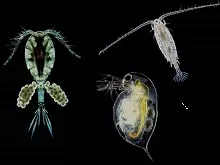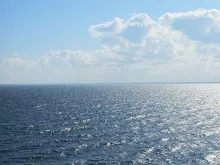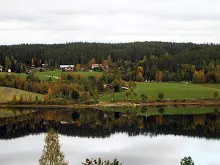Hydrology and Aquatic-Terrestrial interactions
Aquatic ecosystems now undergo some of the biggest and fastest changes of the last thousands of years. Many changes are connected to human-induced loadings of organic matter, inorganic nutrients and trace elements to inland and coastal waters.
Natural stream-lake network has been significantly altered by dam constructions, ditching and water diversion for irrigation purposes. In addition, rising concentrations of CO2 are causing marine acidification and a changing climate where the role of existing ecosystems are re-defined at the same time as, e.g., new water bodies are created as the northern permafrost soils are thawing.
Inland waters constitute a recently discovered net source of atmospheric greenhouse gas emissions, representing a flux that may be of the same order of magnitude as the net carbon uptake by the oceans, or of the terrestrial carbon sink. While there are many contrasting hypotheses about the source of these emissions, there is general agreement that they are driven by diffuse terrestrial leaching of CO2 via groundwater, and of reactive organic carbon that has a potential to be degraded into CO2 and CH4 in the aquatic environment.
The aquatic biogeochemical research at INES takes a broad approach in studies of the cycling of carbon and other elements at the soil-stream interface and across rivers, lakes, impoundments, estuaries and marine ecosystems. We are especially interested in characterizing the reactivity of the organic components of carbon, nitrogen and phosphorus. Special attention is paid to the release of CO2 from planktonic microbial processes and on the transfer of organic carbon through aquatic food webs.
Parts of the field studies are targeting small headwater catchments, to create understanding of the mechanisms regulating the terrestrial export of carbon and nutrients. We also work with lakes, rivers and Baltic Sea estuaries, with particular focus on the fluxes of bioavailable nutrients, and on the impact of organic matter in river runoff on oxygen consumption in coastal marine ecosystems.
Projects
Links to full description, people and more in the Lund University research portal
Grön infrastruktur för synergisk klimatanpassning till extrema väderhändelser
Groundwater, making the invisible visible, the cost of inaction
Contact Information
Department of Physical Geography and Ecosystem Science
E-mail: martin [dot] berggren [at] nateko [dot] lu [dot] se
Phone:+46 46 222 17 34





